Research-Related Skills Course Listings
The Research Exposure Opportunities Program develops Research-Related Skills (RRS) courses to promote the development of scholarly writing, critical scholarly literature review, and research presentation skills during a student’s undergraduate research experience. Students in RRS courses are enrolled in a research-intensive undergraduate course (e.g. RELI/ANTH/PSYC 395) for a maximum of 3 credits. In addition to their assigned research hours, students participate in a recitation section that meets weekly for 1 hour in a group setting where they engage in reading, analyzing, and presenting scholarly literature, as well as on writing abstracts and giving talks on their research to different audiences.
the [tab] shortcode need to be wrapped in a [tabs] shortcode
Faculty: Nadia Yaqub, Asian and Middle Eastern Studies
For much of the world, including the Arab World, the latter half of the 20th century was characterized by the drawing of new borders and their enforcement. Movement both within the region itself and between the region and other parts of the world became increasingly difficult. Border practices of dividing groups of people from each other extended to new parts of society, and border zones themselves grew in size. Such practices have only increased in the 21st century as new technologies and a heightened concern with security have engulfed an ever growing share of resources and attention globally. At the same time, border practices have given rise to a multitude of creative responses from individuals and groups who challenge the desirability of the ever more finely grained separation of peoples that these practices have entailed. In the past decade there has been an explosion of artists, writers, and filmmakers from the Arab world responding to border practices and their attendant violence. They have attested to the consequences of that violence, resisted their applications, and creatively circumvented their effects. In this course we will study works of art, film, and literature that arise directly out of various bordering practices in the Arab world. As we study this material we will be addressing the question “What can imaginative works do to process, mitigate or undermine bordering practices?“
Offered: Fall 2020
Faculty: Ana Vinea, Asian and Middle Eastern Studies
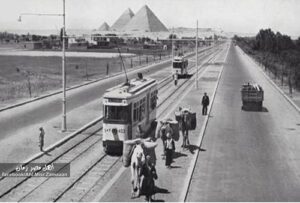 In the public imagination, as well as in scholarly work, the Middle East is a region most frequently associated with gender, politics, Islam, and their relationship. In this class, we approach the region from a different angle: that of the social scientific study of science and technology broadly understood. This allows both for a different (and wider) perspective on the region and offers an occasion to approach these classical themes from unexpected angles. Drawing on works from anthropology and history, the class investigates how scientific theories and practices transform, interact with, and are shaped and shape processes of state and class formation, debates and reconfigurations in the religious field, the management of individual bodies and the population, and cultural processes in the modern Middle East (from the 19th century to the present).
In the public imagination, as well as in scholarly work, the Middle East is a region most frequently associated with gender, politics, Islam, and their relationship. In this class, we approach the region from a different angle: that of the social scientific study of science and technology broadly understood. This allows both for a different (and wider) perspective on the region and offers an occasion to approach these classical themes from unexpected angles. Drawing on works from anthropology and history, the class investigates how scientific theories and practices transform, interact with, and are shaped and shape processes of state and class formation, debates and reconfigurations in the religious field, the management of individual bodies and the population, and cultural processes in the modern Middle East (from the 19th century to the present).
Offered: Spring 2021
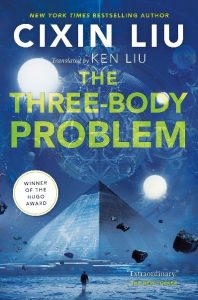 Faculty: Robin Visser, Asian Studies
Faculty: Robin Visser, Asian Studies
Chinese Science Fiction from cyborgs to vampires, from mind control to genetic manipulation, from space travel to time travel, from aliens to sentient robots, no genre has more fully grasped—and influenced—the relationship between scientific discoveries and social transformations than science fiction. It registers the fears and anticipation, the dread and fascination, that comes with scientific innovation and social change. This course will examine the contemporary explosion of Chinese science fiction in the larger context of cultural studies and science studies. We will read globally influential novels such as The Three-Body Problem and analyze films such as The Wandering Earth, asking how threats of global annihilation and the exhaustion of environmental resources, discoveries in virology and epigenetics, and innovations in cybernetics intersect with global development, climate migration, decolonization, race relations, and new social and geopolitical configurations.
Offered: Spring 2020
Faculty: Claudia Yaghoobi, Asian Studies
 In this course, we will examine literary works examining gender and sexuality written by various authors from the Middle East. To contextualize these literary works, we will also read articles and essays on the historical, cultural, social, political and economic backgrounds. In order to approach these literary works in a more effective, useful, and nuanced manner, we will also be reading various secondary materials on topics such as, “the significance of sexuality,” “harems and exoticization of harem women in the West,” “same-sex desire and homosexuality,” “female body and construction of female sexuality,” “Masculinity and male sexuality,” “contraception and abortion,” “the institution of marriage and importance of virginity,” “the question of hijab and veiling,” “gay/lesbian underground subcultures,” and “social media as a sexual outlet” in the Middle East. All readings will be in English.
In this course, we will examine literary works examining gender and sexuality written by various authors from the Middle East. To contextualize these literary works, we will also read articles and essays on the historical, cultural, social, political and economic backgrounds. In order to approach these literary works in a more effective, useful, and nuanced manner, we will also be reading various secondary materials on topics such as, “the significance of sexuality,” “harems and exoticization of harem women in the West,” “same-sex desire and homosexuality,” “female body and construction of female sexuality,” “Masculinity and male sexuality,” “contraception and abortion,” “the institution of marriage and importance of virginity,” “the question of hijab and veiling,” “gay/lesbian underground subcultures,” and “social media as a sexual outlet” in the Middle East. All readings will be in English.
Offered:
Spring 2020
Faculty: Laura Miller, Biology
The focus of this first year seminar is to describe organisms living within moving fluids using both mathematical and physical models. The natural world is replete with examples of animals and plants whose shape influences flow to their benefit. For example, the shape of a maple seed generates lift to allow for farther dispersal. The structure of a pinecone helps it to filter pollen from the air. A falcon’s form during a dive reduces drag and allows it to reach greater speeds.
This course will be focused on independent student projects. We will mathematically describe the shape of organisms using 3D computer aided design (CAD). We will use the 3D objects in numerical simulations of flow around an organism. We will also 3D print these objects and place them inside flow tanks for comparison to simulation. By the end of this course, students should be able to create 3D models of organs and organisms, run numerical simulations on a remote cluster, explain how the flow around an organism can be important to feeding, nutrient exchange, dispersal, and survivability, and visualize flows experimentally and using numerically generated data.
Offered:
Fall 2019 (Syllabus)

Faculty: Gidi Shemer, Biology

BIOL 395H is an extension of BIOL 395. In addition to the independent-mentored research in their corresponding labs, students attend a 1.5 hours weekly meeting under the leadership of a postdoctoral fellow, with the goal of developing research related skills, addressing mainly the three pillars of scientific research- reading, writing, presenting. Students will analyze papers from different disciplines in Biology, write and (peer) review abstracts, and will present “chalk-talks” of their own research. Finally, students will write a paper (first semester students) or present a poster (second semester) about their findings during the semester.
Offered:
Spring 2020
Fall 2019 (Syllabus)
Spring 2019
Fall 2018
Spring 2018 (Syllabus)
Fall 2017
Faculty: Elizabeth Shank, Biology
In this highly interactive class, we emphasize the creativity of the scientific process and an understanding of how scientific information is communicated. Rather than use a textbook, we will discuss in depth a small number of scientific primary literature papers using an approach termed C.R.E.A.T.E. (Consider, Read, Elucidate the hypotheses, Analyze the data, Think of the next Experiment). The primary goal of the class is to teach students how to apply high-level critical thinking skills to the analysis and interpretation of data and learn to ‘think like a scientist’ by modeling the concrete skills you need to understand scientific primary literature (e.g. concept maps, annotations, re-phrasing, cartooning, etc.) Individually, in small groups, and as a class, we will practice skills used by real scientists. You will learn how to interpret figures and draw your own conclusions from data, as well as be coached to generate hypotheses, propose and design experiments to address them, and evaluate these potential follow-up experiments. Underlying all of these discussions will be the principles of microbial ecology (e.g. microbial diversity, phylogenetic relationships, comparative genomics, microbial distributions in the environment, the mechanisms of microbe-host interactions, how environmental microbial activity affects ecosystems). These ideas will be covered on a need-to-know basis and in the context of recent, hypothesis-driven scientific research, and so will be contextualized with specific, real-world examples.
Offered: Fall 2018
Faculty: Elizabeth Shank, Biology
In this highly interactive class, we emphasize the creativity of the scientific process and an understanding of how scientific information is communicated. Rather than use a textbook, we will discuss in depth a small number of scientific primary literature papers using an approach termed C.R.E.A.T.E. (Consider, Read, Elucidate the hypotheses, Analyze the data, Think of the next Experiment). The primary goal of the class is to teach students how to apply high-level critical thinking skills to the analysis and interpretation of data and learn to ‘think like a scientist’ by modeling the concrete skills you need to understand scientific primary literature (e.g. concept maps, annotations, re-phrasing, cartooning, etc.) Individually, in small groups, and as a class, we will practice skills used by real scientists. You will learn how to interpret figures and draw your own conclusions from data, as well as be coached to generate hypotheses, propose and design experiments to address them, and evaluate these potential follow-up experiments. Underlying all of these discussions will be the principles of microbial ecology (e.g. microbial diversity, phylogenetic relationships, comparative genomics, microbial distributions in the environment, the mechanisms of microbe-host interactions, how environmental microbial activity affects ecosystems). These ideas will be covered on a need-to-know basis and in the context of recent, hypothesis-driven scientific research, and so will be contextualized with specific, real-world examples.
Offered:
Fall 2018
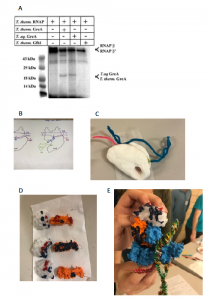 Faculty: Brian Hogan, Chemistry
Faculty: Brian Hogan, Chemistry
Macromolecular Structure and Metabolism is an upper-level chemistry course required for all B.S. chemistry (biochemistry track) majors. The course focuses on the experimental application of biochemistry. Analyzing current primary literature articles related to macromolecular structure and metabolism provides students with an experimental framework to analyze, synthesize and evaluate protein structure-function relationships. A core tenant within all biological sciences is structure determines function. As a result, to understand how a molecular mechanism functions, one must explore the three-dimensional structures of complex and dynamic molecules that are not visible with even the most powerful electron microscope.
Offered:
Fall 2019
Fall 2018
Faculty: Jillian Dempsey, Chemistry
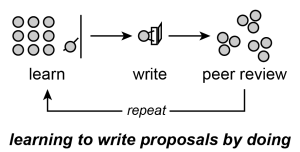 This workshop-based course will introduce students to the basics of technical writing and provide them opportunities to practice and improve their writing skills. The course is formatted around the preparation of an independent research proposal which can be used for graduate school fellowship applications. The writing component of the course will integrate technical writing exercises designed to expose students to aspects of proposal writing with structured multi-week writing assignments that allow them to compose their proposal in manageable pieces. Each component of the proposal will be peer reviewed during in-class workshops that utilize tailored rubrics that enable students to constructively evaluate each other’s revisions. They will iteratively incorporate feedback to strengthen their research proposals over the course of the semester. In parallel, students will learn about funding agencies, learn how to read Requests for Proposals (RFPs), and get guidance in crafting accompanying documentation including CVs and personal statements. Students will also develop additional research-based skills, such as literature searching and reference management.
This workshop-based course will introduce students to the basics of technical writing and provide them opportunities to practice and improve their writing skills. The course is formatted around the preparation of an independent research proposal which can be used for graduate school fellowship applications. The writing component of the course will integrate technical writing exercises designed to expose students to aspects of proposal writing with structured multi-week writing assignments that allow them to compose their proposal in manageable pieces. Each component of the proposal will be peer reviewed during in-class workshops that utilize tailored rubrics that enable students to constructively evaluate each other’s revisions. They will iteratively incorporate feedback to strengthen their research proposals over the course of the semester. In parallel, students will learn about funding agencies, learn how to read Requests for Proposals (RFPs), and get guidance in crafting accompanying documentation including CVs and personal statements. Students will also develop additional research-based skills, such as literature searching and reference management.
Offered: Fall 2019 (Syllabus)
Faculty: Suzanne Lye, Classics
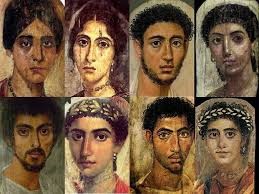 This course examines constructions of race and ethnicity in the ancient Mediterranean through the art, literature, and archaeology of ancient Greece and Rome, as well as that of other select cultural groups, including Egypt.
This course examines constructions of race and ethnicity in the ancient Mediterranean through the art, literature, and archaeology of ancient Greece and Rome, as well as that of other select cultural groups, including Egypt.
Offered:
Spring 2021
Faculty: Kris Jordan, Computer Science
Computer Science Education is a growing area of interest as computational thinking and computer science are increasingly taught in primary schools and incorporated into higher-education curriculums. In this topics course, we will survey a sequence of research papers in the field of computer science education, write papers that communicate key findings, and lead discussion-centered pre-sentations on research papers. Our focus will be on evidence-based research published at ACM’s Special Interest Group in Computer Science Education (SIGCSE) and International Computing Education Research (ICER) conferences, as well as ACM’s Transactions on Computing Education journal.
Offered:
Spring 2020
Fall 2019
Fall 2018
Faculty: Martin Johnson, English and Comparative Literature
 From the debut of Auguste and Louis Lumière’s cinematograph in 1895 to the alarm about the closing of theaters during the covid-19 pandemic, cinema has had an enduring place in global culture. But until recently, film and media scholars have focused on the production and analysis of moving images, ignoring the experience of the cinema. In this class, we will explore the history of moviegoing and movie culture in a global context. In our journey, we will ask questions such as these: How did moviegoing emerge as a mass phenomenon, and what is its future? Why did the star system develop in the commercial cinema, and what does it have to teach us about our contemporary experience of mediated identities? Which social groups were the most enthusiastic patrons of movie theaters, and how can we use cinema to understand changes in global culture? How was cinema received in different national contexts, in large cities and rural areas, and in different cultures? How have new moving image technologies affected our engagement with the cinema?
From the debut of Auguste and Louis Lumière’s cinematograph in 1895 to the alarm about the closing of theaters during the covid-19 pandemic, cinema has had an enduring place in global culture. But until recently, film and media scholars have focused on the production and analysis of moving images, ignoring the experience of the cinema. In this class, we will explore the history of moviegoing and movie culture in a global context. In our journey, we will ask questions such as these: How did moviegoing emerge as a mass phenomenon, and what is its future? Why did the star system develop in the commercial cinema, and what does it have to teach us about our contemporary experience of mediated identities? Which social groups were the most enthusiastic patrons of movie theaters, and how can we use cinema to understand changes in global culture? How was cinema received in different national contexts, in large cities and rural areas, and in different cultures? How have new moving image technologies affected our engagement with the cinema?
In answering these questions, we will interpret primary source materials, consider questions of methodology and evidence, and revisit classic debates about how film history is written. We will also develop and conduct original research projects on the historical experience of the cinema, including historical approaches to contemporary phenomena. In this course, you will learn how to research and write histories of film and media using an array of methodologies and primary source materials. Assignments include several “student-sourced” research projects, which will give you first-hand experience with using primary digital documents as evidence, and, in the second half of the semester, a research project of your choice, which we will develop in class.
Offered:
Spring 2021 (Syllabus)
Faculty: J.D. DeFreese, Exercise and Sport Science
 How does one come up with a research idea, turn it into a study, and synthesize that work into an empirical paper? Using the sport and exercise psychology discipline as a window to unlocking larger concepts of understanding and analyzing empirical research in exercise and sport science, this course will expose students to a “journal club” type course experience allowing them to discuss empirical articles within one discipline as a means to better understand sport and exercise science as a as a holistically. Building on the C.R.E.A.T.E. (Consider, Read, Elucidate the hypotheses, Analyze and interpret the data, and Think of the next Experiment) method of instruction, this course will cover advanced subject matter topics in sport & exercise psychology such as motivation, exercise adherence, social relationships in physical activity environments, and participant psychological outcomes including enjoyment, self-efficacy/confidence, social support, as well as negative outcomes like depression, anxiety and burnout. This course will utilize active learning strategies to support student learning objectives related to understanding/critical thinking, synthesis, and the formulation of novel research questions relative to individual student interests in topics of sport & exercise psychology.
How does one come up with a research idea, turn it into a study, and synthesize that work into an empirical paper? Using the sport and exercise psychology discipline as a window to unlocking larger concepts of understanding and analyzing empirical research in exercise and sport science, this course will expose students to a “journal club” type course experience allowing them to discuss empirical articles within one discipline as a means to better understand sport and exercise science as a as a holistically. Building on the C.R.E.A.T.E. (Consider, Read, Elucidate the hypotheses, Analyze and interpret the data, and Think of the next Experiment) method of instruction, this course will cover advanced subject matter topics in sport & exercise psychology such as motivation, exercise adherence, social relationships in physical activity environments, and participant psychological outcomes including enjoyment, self-efficacy/confidence, social support, as well as negative outcomes like depression, anxiety and burnout. This course will utilize active learning strategies to support student learning objectives related to understanding/critical thinking, synthesis, and the formulation of novel research questions relative to individual student interests in topics of sport & exercise psychology.
Offered:
Spring 2020
Spring 2019 (previously EXSS 290)
Faculty: Dorothea Heitsch, Romance Studies
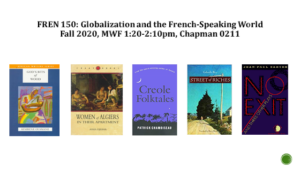 In this course, we will explore the different facets of the modern French-speaking world ranging from Algeria to Senegal to the Caribbean and to Quebec while keeping in mind those regions’ fraught relationships with France and the importance of their links with the United States. FREN 150 is part of the IAAR-SLATE initiative (https://iaar-slate.unc.edu) launched by the Institute of African American Research in Fall 2020 (Student Learning to Advance Truth and Equity). FREN 150 also participates in the Quality Enhancement Plan (QUEP).
In this course, we will explore the different facets of the modern French-speaking world ranging from Algeria to Senegal to the Caribbean and to Quebec while keeping in mind those regions’ fraught relationships with France and the importance of their links with the United States. FREN 150 is part of the IAAR-SLATE initiative (https://iaar-slate.unc.edu) launched by the Institute of African American Research in Fall 2020 (Student Learning to Advance Truth and Equity). FREN 150 also participates in the Quality Enhancement Plan (QUEP).
Offered: Fall 2020
Faculty: Brett Whalen, History
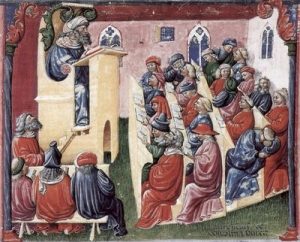
This Research-Related Skills course will ask UNC’s modern university students to carry out historical research centering on the world of higher education in the European Middle Ages. What was the nature of medieval education in monasteries, cathedral schools, and especially universities? What subjects did students study and why? What role did Christian beliefs play in their education? What careers did students hope to pursue after their formal education ended? To answer questions like these, students will immerse themselves in primary source materials from the medieval world of education: theological tracts, scientific manuals, biblical commentaries, textbooks, rules, and other artefacts relating to theology, law, medicine, astronomy, rhetoric, history and more. They will engage and critique existing scholarship on the subject and connect their work to the bigger picture of medieval education. As part of this one-credit course, students will present their findings during University Research Week in April.
Offered: Spring 2019
Faculty: Benjamin Waterhouse, History
 How did national politics shaped what it meant to live as an American during the tumultuous 20th century? This course takes a wide view of what politics is and asks how citizens, parties, interest groups, and social organizations collectively shaped the destiny of the nation. Students will dive deep into primary sources—from private correspondence among world leaders to campaign strategy papers, from speeches by activists from the Left, Right, and Center to the testimonies of everyday people who influenced the highest levels of government. With the bounty of primary sources at UNC’s Southern Historical Collection, we will reconstruct the pivotal experiences of the American century.
How did national politics shaped what it meant to live as an American during the tumultuous 20th century? This course takes a wide view of what politics is and asks how citizens, parties, interest groups, and social organizations collectively shaped the destiny of the nation. Students will dive deep into primary sources—from private correspondence among world leaders to campaign strategy papers, from speeches by activists from the Left, Right, and Center to the testimonies of everyday people who influenced the highest levels of government. With the bounty of primary sources at UNC’s Southern Historical Collection, we will reconstruct the pivotal experiences of the American century.
Offered:
Spring 2019
Fall 2018
Faculty: Eren Tasar, History
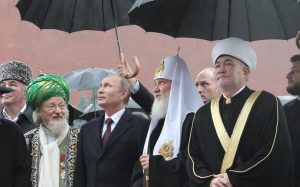 This course explores the political and social landscape of Russia’s three largest religions-Christianity, Islam, and Judaism-over the past two hundred years. It will focus primarily on Russia’s status as a Christian-majority state with large ethnic and religious minorities. How was Russia balanced this tension? How have these three religious traditions negotiated their relationship with an increasingly ambitious and ideological state, from the growth of Russian nationalism in the nineteenth century to the militant atheism of the Communist Party in the twentieth? In what ways have religious institutions resisted state policies affecting them, and when have they opted for accommodation and compromise rather than revolt?
This course explores the political and social landscape of Russia’s three largest religions-Christianity, Islam, and Judaism-over the past two hundred years. It will focus primarily on Russia’s status as a Christian-majority state with large ethnic and religious minorities. How was Russia balanced this tension? How have these three religious traditions negotiated their relationship with an increasingly ambitious and ideological state, from the growth of Russian nationalism in the nineteenth century to the militant atheism of the Communist Party in the twentieth? In what ways have religious institutions resisted state policies affecting them, and when have they opted for accommodation and compromise rather than revolt?
Offered:
Fall 2018
Faculty: I. Jonathan Kief, Asian & Middle Eastern Studies
 This course introduces students to the modern history and culture of Korea through the lens of the city and its transformations. Beginning in the late Chosŏn period and concluding with the contemporary era, we will explore the changing shape of urban space on the Korean peninsula as well as the central role that visions of the city and of city life have played in the development of modern Korean literature, television, and film. In the process, we will consider a range of questions including the following: How have changing forms of urban life and culture grown out of – and contested – broader transformations in Korea’s modern history? How have the growth of urban spaces facilitated the re-imagination of modern Korean life and identity across different historical periods? By addressing these questions and making use of new technologies like digital mapping, this course will highlight the dynamism of modern Korean history and the diversities of experience, identity, and imagination that have emerged in tandem with it. There are no prerequisites for this course and all readings will be in English.
This course introduces students to the modern history and culture of Korea through the lens of the city and its transformations. Beginning in the late Chosŏn period and concluding with the contemporary era, we will explore the changing shape of urban space on the Korean peninsula as well as the central role that visions of the city and of city life have played in the development of modern Korean literature, television, and film. In the process, we will consider a range of questions including the following: How have changing forms of urban life and culture grown out of – and contested – broader transformations in Korea’s modern history? How have the growth of urban spaces facilitated the re-imagination of modern Korean life and identity across different historical periods? By addressing these questions and making use of new technologies like digital mapping, this course will highlight the dynamism of modern Korean history and the diversities of experience, identity, and imagination that have emerged in tandem with it. There are no prerequisites for this course and all readings will be in English.
Offered:
Spring 2021
Faculty: Rachel Penton, Psychology and Neuroscience
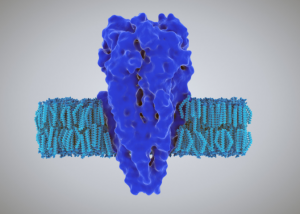 NSCI 405, Advanced Molecular Neuropharmacology, provides a detailed study of the mechanisms of drug action at the molecular level by examining primary literature in depth. The focus will be on ligand-receptor interactions and modulation of receptor number, structure, and function by drugs. Detailed examples will examine the molecular details of both ligand gated-ion channels and G-protein coupled receptors. The course will use primary literature to delve into research where central themes will include developing critical thinking and communication skills. The CREATE method (Consider, Read, Elucidate hypotheses, Analyze and interpret the data, and Think of the next Experiment) will be used. This approach uses an intensive analysis of primary literature, utilizing both small group work and larger class discussions to probe the scientific method and experimental approaches to particular problems. My aim will be to engage students in science and discovery and help to develop critical thinking skills, analytical skills, and a general interest/passion for science.
NSCI 405, Advanced Molecular Neuropharmacology, provides a detailed study of the mechanisms of drug action at the molecular level by examining primary literature in depth. The focus will be on ligand-receptor interactions and modulation of receptor number, structure, and function by drugs. Detailed examples will examine the molecular details of both ligand gated-ion channels and G-protein coupled receptors. The course will use primary literature to delve into research where central themes will include developing critical thinking and communication skills. The CREATE method (Consider, Read, Elucidate hypotheses, Analyze and interpret the data, and Think of the next Experiment) will be used. This approach uses an intensive analysis of primary literature, utilizing both small group work and larger class discussions to probe the scientific method and experimental approaches to particular problems. My aim will be to engage students in science and discovery and help to develop critical thinking skills, analytical skills, and a general interest/passion for science.
Offered:
Spring 2020
Faculty: Sabrina Robertson, Psychology and Neuroscience
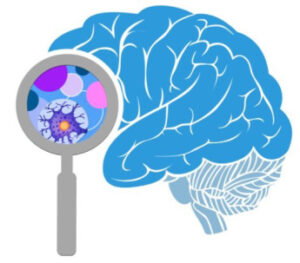 This course addresses fundamental challenges inherent in studying the brain and explores the theory, applications, and limitations of new and traditional neurotechnology. The unique ethical issues and significance of interdisciplinary approaches in neuroscience will also be highlighted. Students will analyze research literature and focus on cellular, molecular and genetic techniques that are essential staples in the neuroscientist’s toolkit. Students will also design experiments, utilize publicly available resources, and analyze big data generated by high-throughput approaches to investigate research questions.
This course addresses fundamental challenges inherent in studying the brain and explores the theory, applications, and limitations of new and traditional neurotechnology. The unique ethical issues and significance of interdisciplinary approaches in neuroscience will also be highlighted. Students will analyze research literature and focus on cellular, molecular and genetic techniques that are essential staples in the neuroscientist’s toolkit. Students will also design experiments, utilize publicly available resources, and analyze big data generated by high-throughput approaches to investigate research questions.
Offered:
Spring 2021 (Syllabus)
Fall 2020
Faculty: Monica Gaudier-Diaz, Psychology and Neuroscience
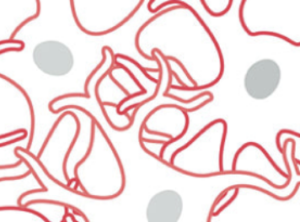 The nervous and immune systems interact with each other in complex ways to influence behavior, health, and well-being. In this course, we will examine the mechanisms by which these two systems interact. Further, we will cover how the nervous and immune systems function together to serve homeostasis, behavior, and disease. While covering how these two systems function together students will participate in paper discussions, engage in scholarly writing, and generate a novel research question, to further develop research related skills.
The nervous and immune systems interact with each other in complex ways to influence behavior, health, and well-being. In this course, we will examine the mechanisms by which these two systems interact. Further, we will cover how the nervous and immune systems function together to serve homeostasis, behavior, and disease. While covering how these two systems function together students will participate in paper discussions, engage in scholarly writing, and generate a novel research question, to further develop research related skills.
Offered:
Spring 2021
Faculty: Brigitte Seim, Public Policy
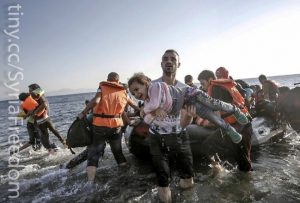 Global issues are challenges whose sources, impacts, and solutions extend beyond the borders of any one country. This course serves as an introduction to several of the most pressing issues facing populations around the world and the challenges of designing and implementing policies to address these issues. Emphasis will be placed on students’ ability to critically evaluate the causes, consequences, and most promising policy responses to each challenge. Students will learn about global policy issues through critically evaluation of scholarly literature and through a semester-long research project. They will be encouraged to build the analytical and communication skills necessary to pursue research in the most salient policy arenas facing our world today, either in further study or in career paths.
Global issues are challenges whose sources, impacts, and solutions extend beyond the borders of any one country. This course serves as an introduction to several of the most pressing issues facing populations around the world and the challenges of designing and implementing policies to address these issues. Emphasis will be placed on students’ ability to critically evaluate the causes, consequences, and most promising policy responses to each challenge. Students will learn about global policy issues through critically evaluation of scholarly literature and through a semester-long research project. They will be encouraged to build the analytical and communication skills necessary to pursue research in the most salient policy arenas facing our world today, either in further study or in career paths.
Offered: Fall 2018
Faculty: Jennifer Hazen, Public Policy
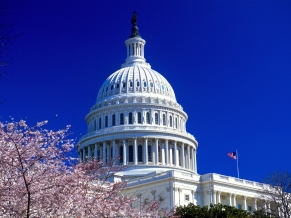 This course provides students with mentoring and practice to enhance their research, analytical, writing, and presentation skills. This course will be run as a workshop, emphasizing the practice of these skills. Students will work in small groups on practical assignments, such as: identifying reputable sources, analyzing scholarly literature, and providing peer review of drafts of course assignments for PLCY352H. These small group discussions will provide the basis for a larger class discussion. Students will have numerous opportunities to present their work to their small groups. The goal of the course is to provide students with the opportunity to practice essential skills. Upon completing this course, students should be able to: Deliver and receive constructive feedback; Identify reputable sources; Critically analyze arguments and supporting evidence; Design Op-Eds, policy memos, policy briefs, oral presentations, and portfolios; and, Deliver oral presentations with confidence.
This course provides students with mentoring and practice to enhance their research, analytical, writing, and presentation skills. This course will be run as a workshop, emphasizing the practice of these skills. Students will work in small groups on practical assignments, such as: identifying reputable sources, analyzing scholarly literature, and providing peer review of drafts of course assignments for PLCY352H. These small group discussions will provide the basis for a larger class discussion. Students will have numerous opportunities to present their work to their small groups. The goal of the course is to provide students with the opportunity to practice essential skills. Upon completing this course, students should be able to: Deliver and receive constructive feedback; Identify reputable sources; Critically analyze arguments and supporting evidence; Design Op-Eds, policy memos, policy briefs, oral presentations, and portfolios; and, Deliver oral presentations with confidence.
Offered:
Spring 2020
Spring 2019
Spring 2018 (Syllabus)
Faculty: Eric Youngstrom, Psychology and Neuroscience
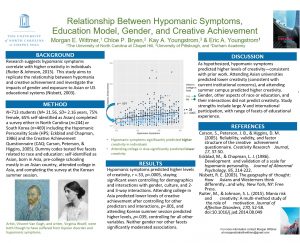 You have read about psychology research, participated in it… now you are ready to learn how to do it! The focus of this course is to introduce aspiring undergraduates to data science, with an emphasis on data visualization, analysis, and presentation using a variety of formats, and thinking through the best ways to engage different audiences. We will build and edit pages on Wikipedia and Wikiversity, work with Qualtrics data collection forms, and use R and SPSS or SAS to manipulate the information. Content examples will include mood disorders, with a particular emphasis on sleep and circadian regulation, as well as cultural issues relating to various aspects of mood and treatment. Much of the course is built around discussion and experiential learning. The culmination is a presentation-ready poster, such as could be presented at regional or national conferences.
You have read about psychology research, participated in it… now you are ready to learn how to do it! The focus of this course is to introduce aspiring undergraduates to data science, with an emphasis on data visualization, analysis, and presentation using a variety of formats, and thinking through the best ways to engage different audiences. We will build and edit pages on Wikipedia and Wikiversity, work with Qualtrics data collection forms, and use R and SPSS or SAS to manipulate the information. Content examples will include mood disorders, with a particular emphasis on sleep and circadian regulation, as well as cultural issues relating to various aspects of mood and treatment. Much of the course is built around discussion and experiential learning. The culmination is a presentation-ready poster, such as could be presented at regional or national conferences.
Offered: Fall 2017
Faculty: Monica Michelle Gaudier-Diaz and Keely Muscatell, Psychology and Neuroscience
 This 1 credit course aims to strengthen the undergraduate research experience by offering students an opportunity to develop critical scientific thinking, communication, and writing skills. First, students will be taught how to conduct an appropriate literature review on a topic of their choice. Then, they will develop a research proposal for a study that would significantly contribute to the field of social psychology. Peer and instructor feedback will be provided as students work on a poster and paper describing the study proposal. Lastly, students are evaluated on their oral poster presentation and a 10-page written report. This course is ideal for juniors who plan to complete a senior thesis, because it provides additional mentoring to students and step-by-step guidance while they develop a research proposal.
This 1 credit course aims to strengthen the undergraduate research experience by offering students an opportunity to develop critical scientific thinking, communication, and writing skills. First, students will be taught how to conduct an appropriate literature review on a topic of their choice. Then, they will develop a research proposal for a study that would significantly contribute to the field of social psychology. Peer and instructor feedback will be provided as students work on a poster and paper describing the study proposal. Lastly, students are evaluated on their oral poster presentation and a 10-page written report. This course is ideal for juniors who plan to complete a senior thesis, because it provides additional mentoring to students and step-by-step guidance while they develop a research proposal.
Offered: Spring 2018 (Syllabus)
the [tab] shortcode need to be wrapped in a [tabs] shortcode
the [tab] shortcode need to be wrapped in a [tabs] shortcode
[/tabs]
